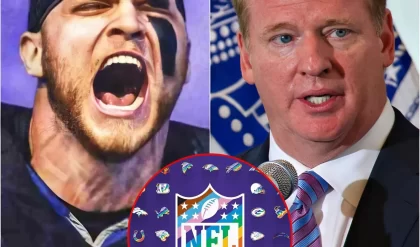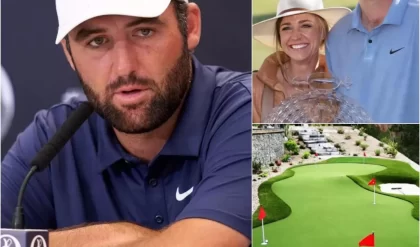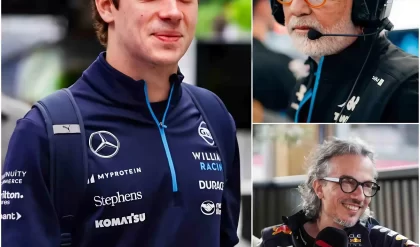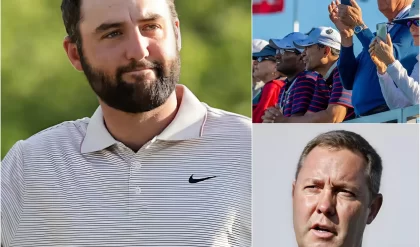In a world where professional athletes are often defined by their relentless pursuit of greatness, a recent exchange between NFL legend Tom Brady and golf’s world No. 1 Scottie Scheffler has sparked a fascinating conversation about balancing family and career. The debate began when Brady, in his weekly newsletter, responded to Scheffler’s candid remarks about prioritizing his family over his golf career, leaving readers intrigued by the contrast in their philosophies and Scheffler’s unexpected reaction that left Brady momentarily speechless.
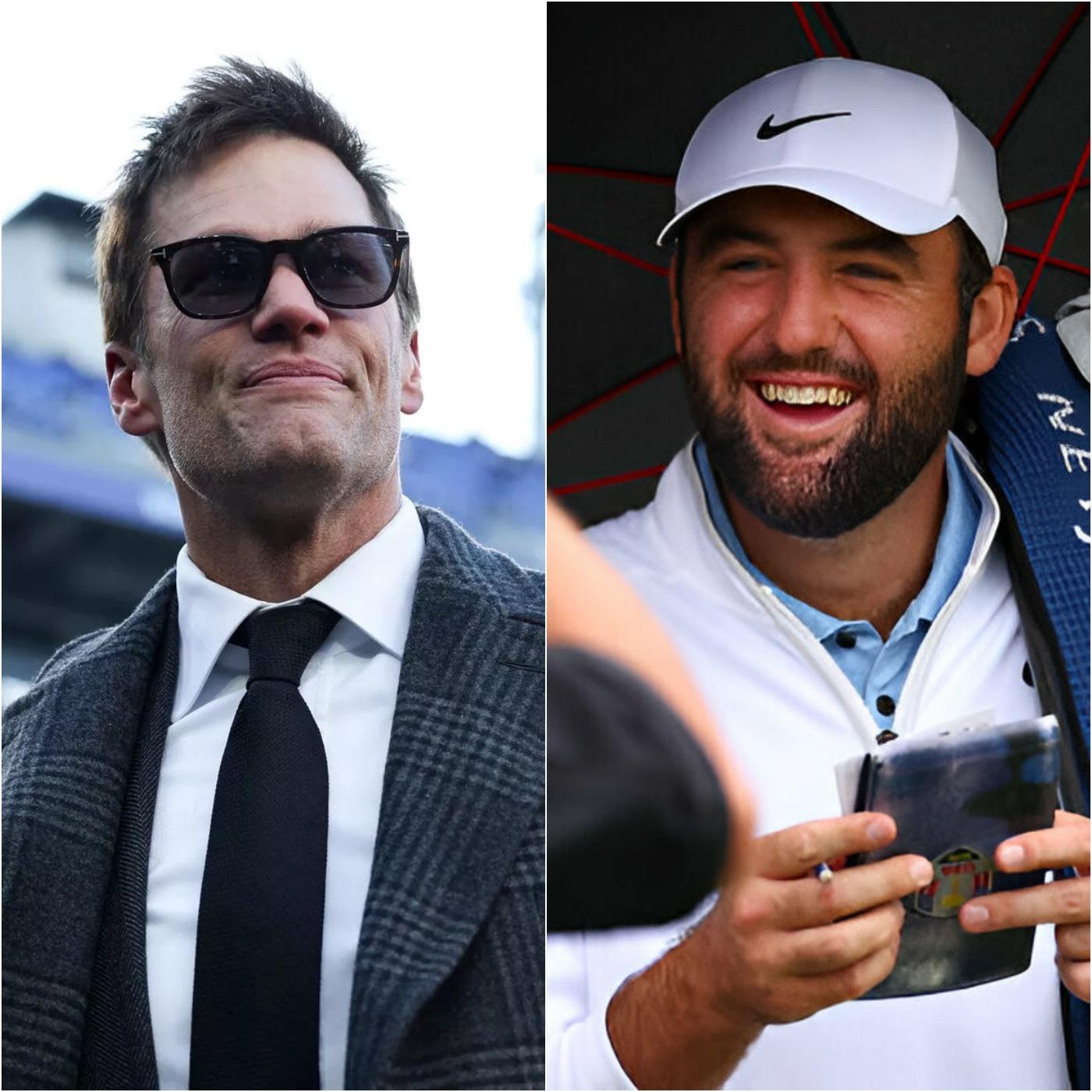
Scottie Scheffler, at just 29 years old, has cemented his status as one of golf’s brightest stars. With four major championships, including the 2025 Open Championship at Royal Portrush, and a stranglehold on the world No. 1 ranking for 150 weeks, Scheffler’s dominance on the course is undeniable. Yet, during a press conference on July 15, 2025, before his Open Championship victory, Scheffler shared a perspective that resonated far beyond the fairways. He spoke openly about the fleeting nature of professional success, saying, “This is not a fulfilling life. It’s fulfilling from the sense of accomplishment, but it’s not fulfilling from a sense of the deepest places of your heart. That’s why I talk about family being my priority because it really is. I’m blessed to be able to come out here and play golf, but if my golf ever started affecting my home life or it ever affected the relationship I have with my wife or my son, that’s going to be the last day that I play out here for a living.
These words, delivered with raw honesty, struck a chord with fans and media alike. Scheffler, a new father to his 14-month-old son Bennett, emphasized that his role as a husband and father to his wife Meredith and their child outweighs any trophy or accolade. His remarks painted a picture of a man who, despite his extraordinary talent, views golf as a means to an end rather than the core of his identity. This perspective, however, caught the attention of Tom Brady, the seven-time Super Bowl champion, who offered a contrasting viewpoint in his newsletter, “199,” published on July 29, 2025.
Brady, now 47 and retired from the NFL since 2023, questioned Scheffler’s stance, writing, “Scottie said he’d rather be a better father and husband than a good golfer. And my question is: why are those mutually exclusive? Sure, they’re different blocks on the pyramid, but they’re part of the same pyramid. They’re connected! For instance, I think part of being a great father is being a great example of doing what it takes to take care of your family. I chose to do it by playing football.” Brady argued that his dedication to football, with its grueling hours of practice and laser focus, was not just about personal achievement but about setting an example for his three children—Jack, Vivian, and Benjamin—by showing them the value of commitment, teamwork, and hard work.
Brady’s perspective is rooted in his own experience as one of the greatest quarterbacks in NFL history. He believes that excelling in one’s profession can coexist with being a devoted parent, as it demonstrates to children the importance of discipline and responsibility. He elaborated, “My dedication to the sport, the hours of practice, the moments when I was laser focused—those were times when I believe I was doing the best possible thing for my family and my kids, by prioritizing my profession and teaching, by example, what it takes to be really good at your job.” Brady’s philosophy suggests that professional success and family life are intertwined, each reinforcing the other.
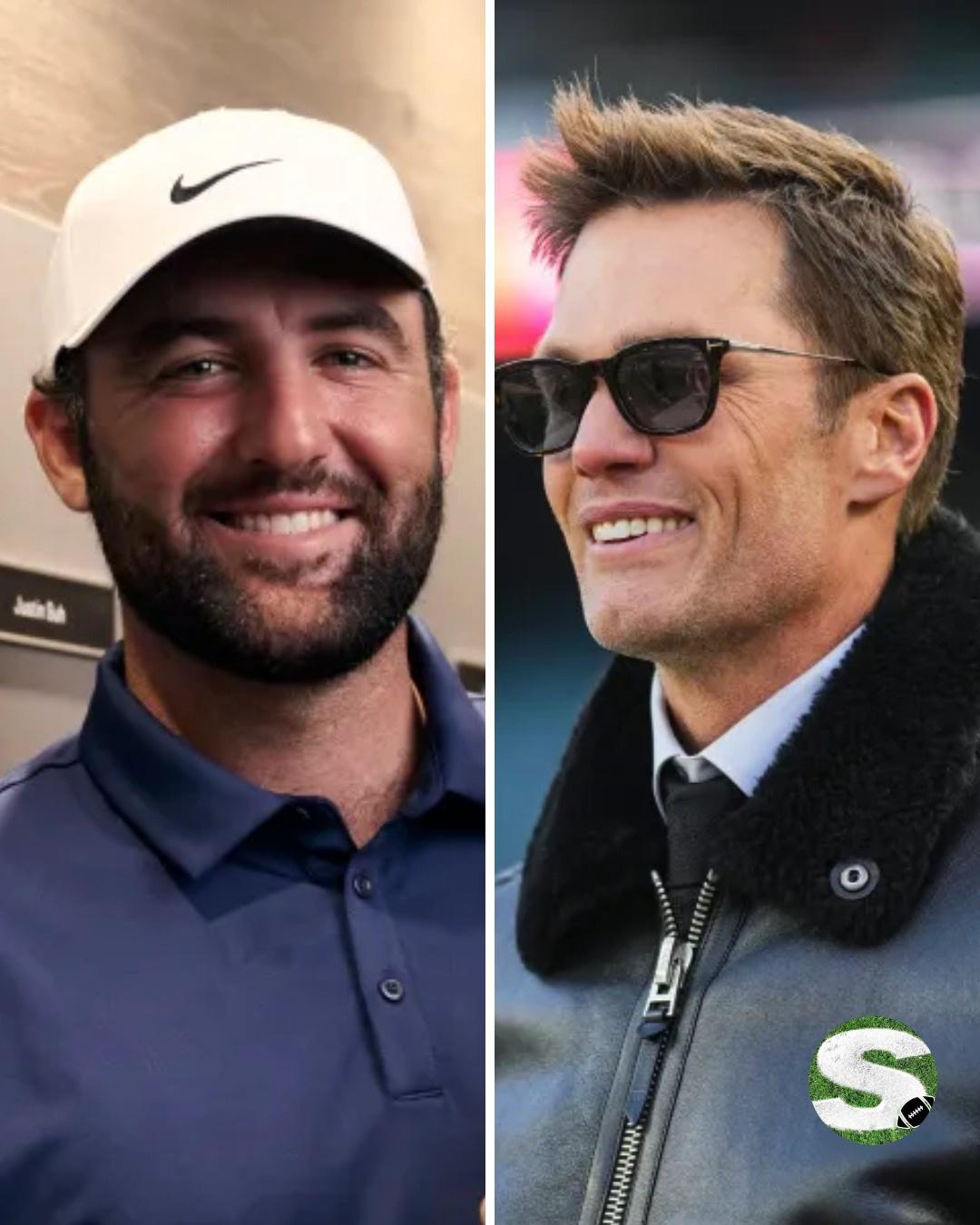
However, Scheffler’s subsequent reaction to Brady’s comments, shared on the “Pardon My Take” podcast, added a surprising twist to the narrative. Reflecting on his viral press conference, Scheffler expressed a hint of regret, not for his beliefs but for how publicly he shared them. “I remember walking out of that room and I’m looking at Blake, my manager, I’ve known since I was like 10 years old, and I’m like, ‘Gosh, why did I start ranting like that,’” Scheffler admitted. This candid admission left Brady, and many others, momentarily taken aback. Scheffler’s willingness to question his own openness while standing firm on his priorities showcased a level of self-awareness that belied his age. It was a moment that highlighted his authenticity and reinforced his commitment to his family-first philosophy, even under scrutiny from a sports icon like Brady.
The exchange between these two titans of their respective sports has ignited a broader discussion about the sacrifices and choices athletes face. Brady’s career, while legendary, came at a personal cost. His 2022 divorce from Gisele Bündchen, after a brief retirement and return to the NFL, was widely publicized, with some speculating that his decision to prioritize football played a role. This context adds complexity to Brady’s critique of Scheffler, as some fans on social media platforms like Reddit have pointed out. One user commented, “Tom retired, then unretired after proving he could win without Belichick and lost his family in the process. He’s in such denial if he believes all of his time on football was for his family.” While harsh, such sentiments reflect the public’s fascination with how elite athletes navigate the delicate balance between career and personal life.
In contrast, Scheffler’s approach seems to resonate with a younger generation of athletes who prioritize mental health and personal fulfillment over relentless ambition. His ability to maintain world-class performance while openly prioritizing his family challenges the traditional narrative of sacrifice for greatness. As Michael Strahan, a Pro Football Hall of Famer, noted on “Good Morning America,” “I don’t know why it’s an argument. Different things work for different people. I honestly think the sports are different. Golf, you go for a week and a lot of time they take their family. Football, you’re in and out.” Strahan’s perspective underscores that there’s no one-size-fits-all approach to balancing these priorities, and Scheffler’s success on the course—winning the Open Championship shortly after his remarks—proves that his philosophy works for him.
The debate between Brady and Scheffler is more than a clash of opinions; it’s a window into the evolving mindset of athletes in the modern era. Brady represents a generation where dedication to craft was often all-consuming, while Scheffler embodies a new wave that seeks balance and meaning beyond the scoreboard. Scheffler’s clarity at 29, as noted by Golf Digest, suggests a wisdom that transcends his years. “Scheffler has an outlook that belies his 29 years,” the outlet wrote, emphasizing that he has “seemingly solved the riddle of understanding where his deeper satisfaction comes from without losing the drive to excel.”
This conversation has captured the attention of sports fans and beyond, sparking curiosity about how two champions can view success so differently. Scheffler’s heartfelt stance and Brady’s reflective critique invite us all to ponder what truly matters in life. Is it the pursuit of excellence, as Brady suggests, or the unwavering commitment to family, as Scheffler champions? Perhaps the answer lies in the space between, where both can coexist in a way that’s uniquely personal. For now, Scheffler’s ability to win majors while keeping his family first, and Brady’s introspective challenge, leave us eagerly awaiting the next chapter in this thought-provoking dialogue.
